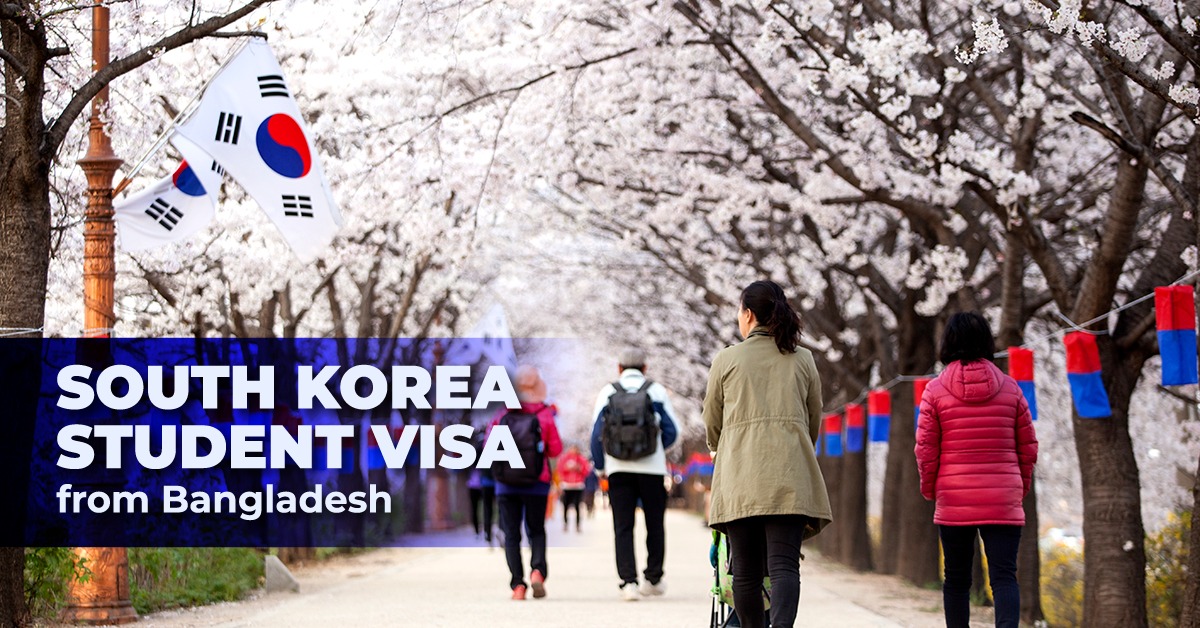
South Korea has become a prime destination for international students, including those from Bangladesh, seeking quality education and cultural exposure. With its globally ranked universities, modern infrastructure, and a strong focus on innovation, South Korea offers Bangladeshi students an enriching academic and personal experience. However, before embarking on this journey, securing a South Korea student visa from Bangladesh is essential.
The visa process might seem daunting at first, but with the right guidance and preparation, it can be a straightforward procedure. This guide will provide you with a detailed breakdown of the types of student visas, application procedures, requirements, and useful tips for Bangladeshi students aspiring to study in South Korea. Whether you are planning to enroll in a bachelor’s, master’s, or language course, this article will ensure you are well-prepared for the process.
South Korea is home to some of the top universities globally, such as Seoul National University, KAIST, and Yonsei University. These institutions offer a wide range of programs in fields like engineering, business, arts, and technology.
Compared to Western countries, South Korea offers relatively affordable tuition fees. Additionally, numerous scholarships, including the Korean Government Scholarship Program (KGSP), are available for Bangladeshi students to ease financial burdens.
As one of the most technologically advanced countries, South Korea provides students access to state-of-the-art facilities and a vibrant cultural scene. For Bangladeshi students, this offers an exciting mix of tradition and modernity.
South Korea’s thriving industries, especially in technology, electronics, and entertainment, offer ample post-graduation career opportunities. International students can also work part-time during their studies.
Before applying for a visa, students must be accepted into a recognized Korean university or educational institution. Ensure you receive an acceptance letter or Certificate of Admission (COA).
Compile the necessary documents for your visa application. Common requirements include:
Visit the South Korean Embassy in Dhaka to submit your visa application along with the required documents. Alternatively, some applications can be submitted online, depending on the university or program.
The embassy may request an interview to assess your intentions and qualifications. Be prepared to discuss your study plans, financial stability, and career goals.
If approved, your visa will be issued within 10-15 business days. Once received, confirm its accuracy and prepare for your journey to South Korea.
Applicants must demonstrate sufficient funds to cover tuition and living expenses in South Korea. This can include personal bank statements, sponsorship letters, or scholarship documentation.
Although not mandatory for all programs, proficiency in English or Korean (e.g., TOEFL, IELTS, or TOPIK scores) may strengthen your application and increase your chances of admission.
Students may be required to provide a medical certificate proving they are free from communicable diseases, including tuberculosis.
Some universities or programs may require a police clearance certificate to ensure the applicant has no prior criminal history.
Start your visa application process at least three months before your intended travel date to allow for unforeseen delays.
Ensure that all the information provided in your application is accurate and truthful. Discrepancies can lead to rejection.
Clearly articulate your academic goals and career aspirations in your application and interview. Demonstrating a clear purpose will strengthen your case.
Double-check your application and supporting documents before submission to avoid missing any required items.
A degree from a South Korean university is internationally recognized and respected, opening doors to global career opportunities.
Living in South Korea offers Bangladeshi students a chance to experience Korean culture, language, and traditions firsthand.
Compared to Western countries, South Korea offers affordable living expenses, particularly for students in smaller cities.
International students in South Korea are allowed to work part-time, providing an opportunity to gain experience and support themselves financially.
Applying for a South Korea student visa from Bangladesh is a significant step toward achieving your academic and professional goals. With its world-class education system, cultural richness, and affordable costs, South Korea offers Bangladeshi students a promising future. By following the outlined steps and ensuring you meet the requirements, you can make your dream of studying in South Korea a reality.
1. What is the processing time for a South Korea student visa?
The processing time for a South Korea student visa is typically 10-15 business days. However, it’s advisable to apply at least three months in advance.
2. How much does a South Korea student visa cost?
The visa application fee for Bangladeshi students ranges between $30 and $50, depending on the type of visa.
3. Can I work part-time with a South Korea student visa?
Yes, international students can work up to 20 hours per week during semesters and full-time during vacations.
4. Do I need to learn Korean for a South Korea student visa?
While not mandatory, proficiency in Korean (or English) can strengthen your application and improve your academic experience.
5. What are the financial requirements for a South Korea student visa?
Students must show proof of sufficient funds to cover tuition fees and living expenses, typically through bank statements or sponsorship letters.
6. Can I apply for a South Korea student visa online?
In some cases, applications can be submitted online, depending on the university or program. Check with the South Korean Embassy for details.
7. Is health insurance mandatory for students in South Korea?
Yes, international students are required to have health insurance, which can be arranged through the university or a private provider.